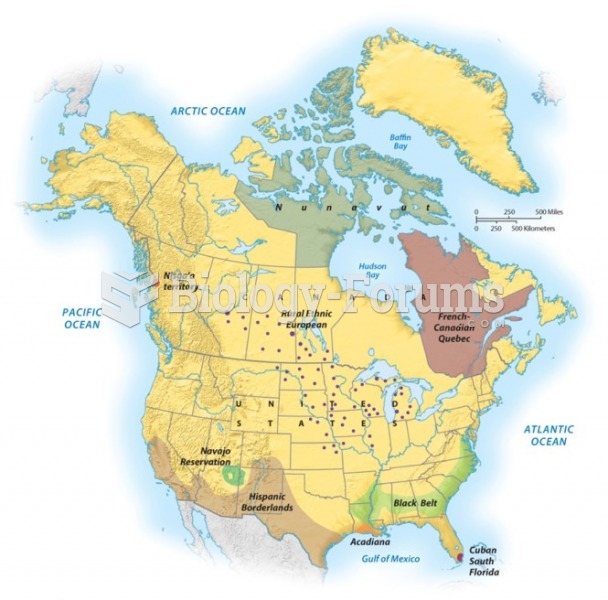Answer to Question 1
Answer: Ethnicity is identity with a group of people who share the cultural traditions of a particular homeland or hearth. Nationality, on the other hand, is identity with a group of people who share legal attachment and personal allegiance to a particular country. Nationality and ethnicity are similar concepts in that both involve identification with a place.
In principle, the cultural values shared with others of the same ethnicity derive from religion, language, and folk culture, whereas those shared with others of the same nationality derive from voting, obtaining a passport, and performing civic duties. In the United States, nationality is generally kept reasonably distinct from ethnicity in common usage. The American nationality identifies citizens of the United States of America, including those born in the country and those who immigrated and became citizens. Ethnicity in the United States identifies groups with distinct ancestry and cultural traditions, such as African Americans, Hispanic Americans, Chinese Americans, and Polish Americans.
The United States forged a nationality in the late eighteenth century through sharing the values expressed in the Declaration of Independence, the U.S. Constitution, and the Bill of Rights. To be American meant believing in the unalienable rights of life, liberty, and the pursuit of happiness, and electing a President rather than submitting to a hereditary monarch.
Answer to Question 2
Answer: The word al-Qaeda is an Arabic word meaning the foundation. It is also the name of the terrorist group founded by Osama bin Laden. This network has been implicated in several bombings since 9/11. The al-Qaeda network issued a declaration of war against the United States in 1996 because of perceived grievances against the US, including the U.S. support for Saudi Arabia and Israel. In a 1998 religious decree known as a FATWA, bin Laden argued that Muslims had a duty to wage a holy war against U.S. citizens because the United States was responsible for maintaining the Saud royal family as rulers of Saudi Arabia and a state of Israel dominated by Jews. Destruction of the Saudi monarchy and the Jewish state of Israel would liberate from their control Islam's three holiest sites of Mecca, Madinah, and Jerusalem.
After U.S. Navy SEALS killed bin Laden in 2011, he was replaced by his deputy Ayman al-Zawahiri. Al-Qaeda is not a single unified organization. In addition to the original organization responsible for the World Trade Center attack, al-Qaeda also encompasses local franchises concerned with country-specific issues, as well as imitators and emulators ideologically aligned with al-Qaeda but not financially tied to it.
Al-Qaeda's use of religion to justify attacks has posed challenges to Muslims and non-Muslims alike. For many Muslims, the challenge has been to express disagreement with the policies of governments in the United States and Europe yet disavow the use of terrorism. For many Americans and Europeans, the challenge has been to distinguish between the peaceful but unfamiliar principles and practices of the world's 1.3 billion Muslims and the misuse and abuse of Islam by a handful of terrorists.







